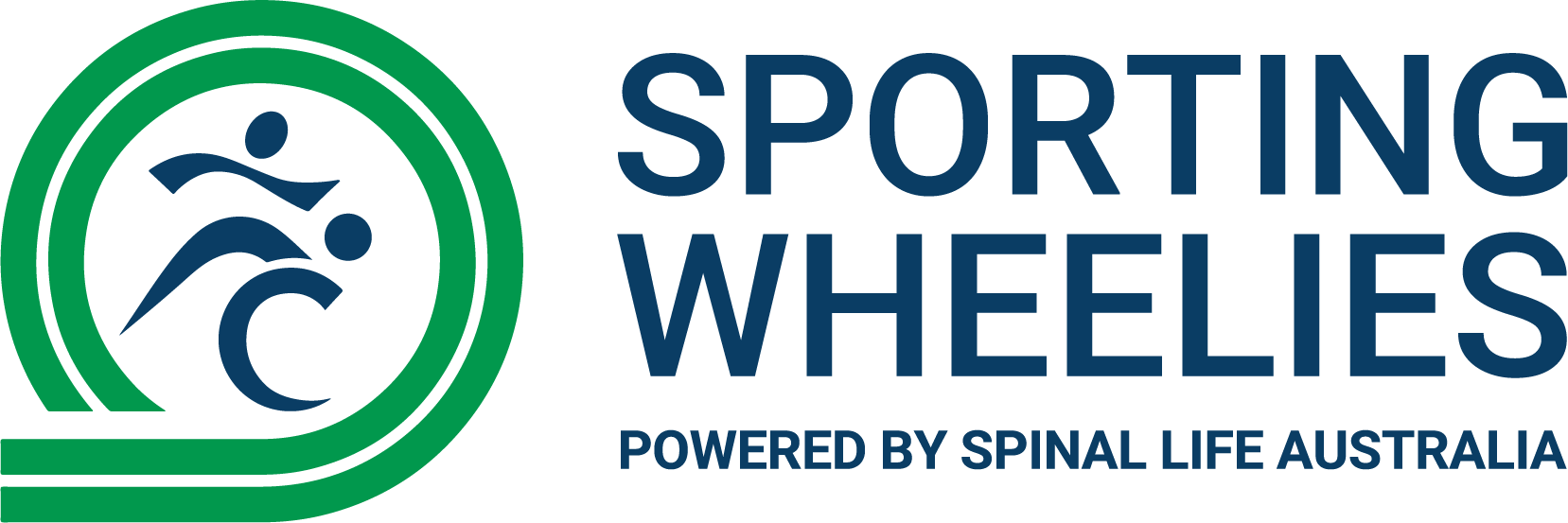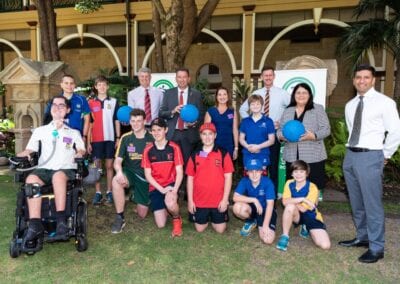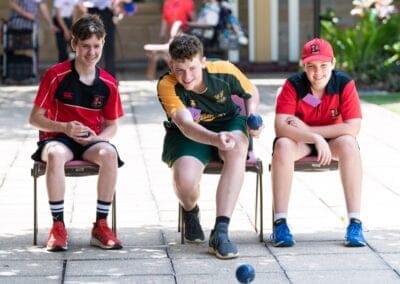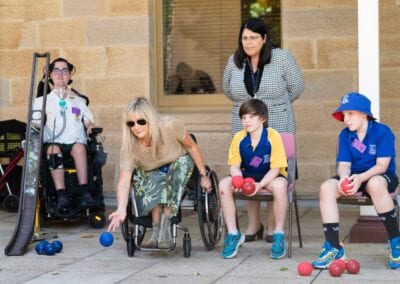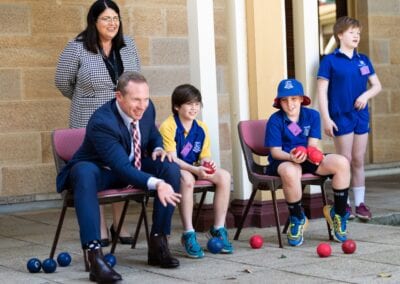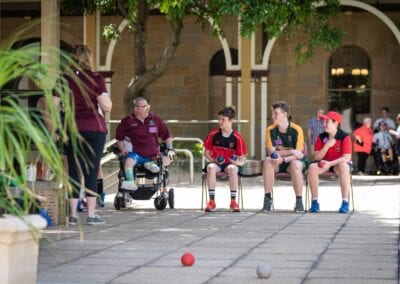Disability Education in Schools
Sporting Wheelies’ inclusive school sports program, Raising the Bar, provides students and teachers with a firsthand experience of playing an inclusive sport. In schools, we are able to deliver Wheelchair Basketball, Wheelchair Rugby, Goalball and Boccia experiences.
Our school sessions are inclusive for all students whether they have a disability or not. The sessions can be adapted to any age group or ability in students. Ultimately, our goal is to provide a meaningful and enjoyable experience that raises awareness and understanding of the lives of people with a disability.
Click on the below video to learn more about the program.
Game Changers
Our programs in schools are run by Game Changers. The team is made up of people with a disability who not only play our inclusive sports but can share their real-world insights with your students and staff.
Click on the below video to learn more about our Game Changers.
Make a Booking
“Well organised, the communication throughout was exceptional, the set up and pack up was smooth, it was informative, had the right amount of talk and activity, value for money and an experience that all students should have”
Lynda Williams
Secondary Teacher, Sports and Year 10 Co-ordinator
WESTSIDE CHRISTIAN COLLEGE
Find Out More
How Inclusive School Sports aligns with the Australian Curriculum
| Learning areas | Health & Physical Education |
|---|---|
| Foundation Year | Participate in play that promotes engagement with outdoor settings and the natural environment (ACPPS007) |
| Identify personal strengths (ACPPS001) | |
| Participate in games with and without equipment (ACPMP009 | |
| Years 1 and 2 | Describe ways to include others to make them feel they belong (ACPPS019) |
| Recognise similarities and differences in individuals and groups, and explore how these are celebrated and respected (ACPPS024) | |
| Create and participate in games with and without equipment (ACPMP027) | |
| Use strategies to work in group situations when participating in physical activities (ACPMP030) | |
| Years 3 and 4 | Describe how respect, empathy and valuing diversity can positively influence relationships (ACPPS037) |
| Participate in physical activities from their own and other cultures (ACPMP108) | |
| Adopt inclusive practices when participating in physical activities (ACPMP048) | |
| Years 5 and 6 | Identify how valuing diversity positively influences the wellbeing of the community (ACPPS060) |
| Practise specialised movement skills and apply them in a variety of movement sequences and situations (ACPMP061) | |
| Participate in physical activities from their own and others’ cultures, and examine how involvement creates community connections and intercultural understanding (ACPMP066) | |
| Apply critical and creative thinking processes in order to generate and assess solutions to movement challenges (ACPMP068) | |
| Years 7 and 8 | Analyse factors that influence emotions, and develop strategies to demonstrate empathy and sensitivity (ACPPS075) |
| Plan and use health practices, behaviours and resources to enhance health, safety and wellbeing of their communities (ACPPS077) | |
| Investigate the benefits to individuals and communities of valuing diversity and promoting inclusivity (ACPPS079) | |
| Practise, apply and transfer movement concepts and strategies with and without equipment (ACPMP082) | |
| Participate in and investigate cultural and historical significance of a range of physical activities (ACPMP085) | |
| Practise and apply personal and social skills when undertaking a range of roles in physical activities (ACPMP086) | |
| Evaluate and justify reasons for decisions and choices of action when solving movement challenges (ACPMP087) | |
| Modify rules and scoring systems to allow for fair play, safety and inclusive participation (ACPMP088) | |
| Years 9 and 10 | Evaluate factors that shape identities and critically analyse how individuals impact the identities of others (ACPPS089) |
| Investigate how empathy and ethical decision making contribute to respectful relationships (ACPPS093) | |
| Plan, implement and critique strategies to enhance health, safety and wellbeing of their communities (ACPPS096) | |
| Critique behaviours and contextual factors that influence health and wellbeing of diverse communities (ACPPS098) | |
| Develop, implement and evaluate movement concepts and strategies for successful outcomes with and without equipment (ACPMP101) | |
| Examine the role physical activity, outdoor recreation and sport play in the lives of Australians and investigate how this has changed over time (ACPMP104) | |
| Transfer understanding from previous movement experiences to create solutions to movement challenges (ACPMP106) | |
| Reflect on how fair play and ethical behaviour can influence the outcomes of movement activities (ACPMP107) | |
| General capabilities | Personal and social Capability |
| Students develop a range of interpersonal skills such as communication, negotiation, teamwork and leadership, and an appreciation of diverse perspectives |
Make a Booking
If you have any questions, give us a call on 07 3253 3333 or email raisingthebar@sportingwheelies.org.au.
